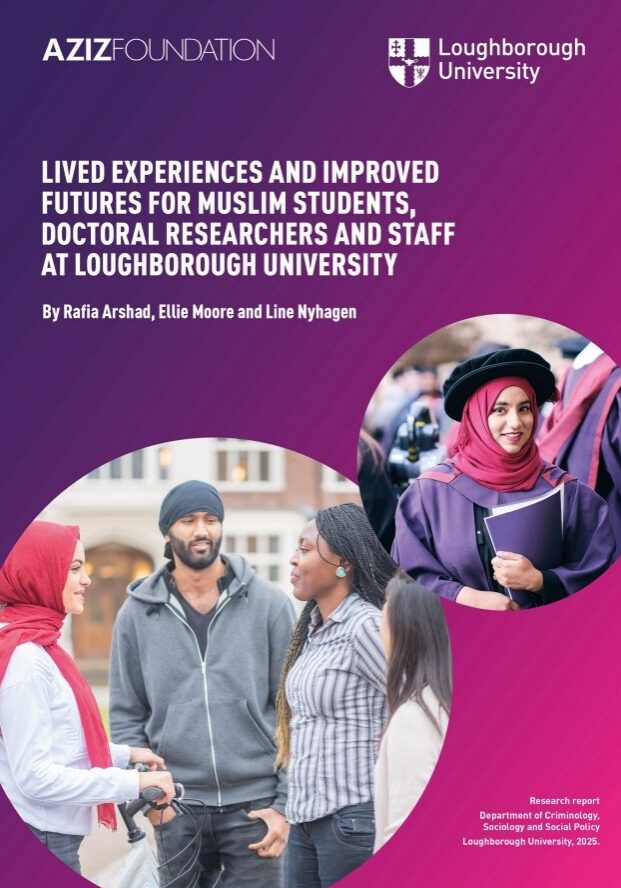Aziz Foundation and Loughborough University Publish co-funded report on Lived Experiences and Improved Futures for Muslim Students and Staff
9 September 2025

We are delighted to announce the publication of our latest research report under the Muslim Friendly Universities Programme: “Lived experiences and improved futures for Muslim students, doctoral researchers, and staff at Loughborough University”, led by Rafia Arshad, Ellie Moore and Line Nyhagen.
Commissioned with the support of The Aziz Foundation, this important project explores the lived realities of Muslim members of the Loughborough University community and provides evidence-based recommendations to better support inclusion, belonging and equity.
Over months of mixed-methods research - including surveys, focus groups, and a campus-wide cultural exhibition - the study captures the everyday experiences of Muslim students, doctoral researchers and staff across both the Midlands and London campuses, highlighting both positive developments and areas for meaningful change.
The report confirms that while many Muslim staff and students feel welcomed and supported - especially through faith facilities, chaplaincy and the Islamic Society - there remain structural and cultural barriers that impact equitable participation, wellbeing and belonging.
The findings highlight:
🔹 Barriers linked to the accessibility and adequacy of prayer facilities, particularly on the London campus and in some academic departments
🔹 Experiences of exclusion in campus cultures and events centred around alcohol and limited halal food options
🔹 A need for improved literacy across the university about Muslim practices, beliefs, and the everyday impact of stereotyping, microaggressions and anti-Muslim hatred
🔹 Conditional forms of belonging, where being a “quiet” Muslim is often expected to gain “tolerance” rather than full recognition and inclusion
🔹 Opportunities to strengthen institutional policies, communications, and workplace cultures to embed faith-sensitive, anti-discriminatory practice
The authors write:
“Our hope is that the research-based evidence and recommendations presented herein will enable and support Muslim students, doctoral researchers and staff in realising their best potential as members of the Loughborough University community.”
This project is ultimately about learning, acting with integrity, and embracing the opportunity to shape a better, fairer future for all.
We extend our thanks to Loughborough University for its leadership and we invite all universities to reflect on these findings, engage with their communities, and take meaningful action so that equality, diversity and inclusion become lived realities, not just aspirations.